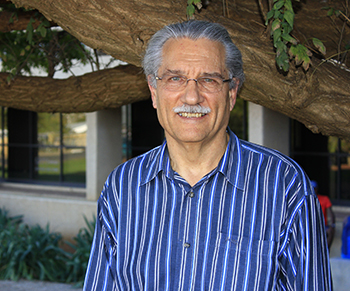Latest News Archive
Please select Category, Year, and then Month to display items
23 April 2020
|
Story Cornelius Hagenmeier
|
Photo Pixabay

The iKudu project, which is an European Union-funded Capacity Building in Higher Education (CBHE) project, has recently launched its blog, which aims to amplify the diverse voices of all iKudu stakeholders. In this space, members of the iKudu team will regularly share their views on the project and related international education topics.
The iKudu project focuses on developing a contextualised South African concept of Internationalisation of the Curriculum (IoC), which integrates Cooperative Online International Learning (COIL) virtual exchanges. The project was launched by the UFS in 2019, together with nine European and South African partner universities. It is funded by the European Union’s Erasmus+ programme with EUR999 881 (approximately R20 million) and is implemented over a three-year period.
The iKudu project is based on the fundamental belief that it is necessary to rethink internationalisation in an uncertain world. First, it is crucial to recognise and transform the power dynamics underlying international academic collaboration. Second, it is essential to develop pedagogies that allow every student to participate in international education, integrating technology where appropriate.
However, while all stakeholders agree on the fundamental tenets of the project and its principal goals, all iKudu stakeholders contribute different perspectives. In the blog, the iKudu stakeholders will provide a space for intellectual discourse on the project and related international education topics, which will allow constructive and critical engagement.
The link to the blog can be found at: https://www.ufs.ac.za/ikudu/ikudu-blogs/Transforming-Curricula-through-Internationalisation-and-Virtual-Exchanges
Former UFS Dean awarded SAAWK medal for contribution to Bible translation work
2016-05-09

Prof Hermie van Zyl
Photo: Eugene Seegers
|
Prof Hermie van Zyl, former Dean of the Faculty of Theology at the University of the Free State (UFS), was recently awarded the Ds Pieter van Drimmelen medal by the South African Academy of Science and Arts (SAAWK) for his contribution to Afrikaans Bible translation and other translation work.
Prof Van Zyl was part of the team that published the Interlinear translation of the Bible (New Testament) in Greek and Afrikaans. This translation takes the reader from the original text (Greek), to an almost verbatim version, to a rough translation, and, ultimately, to a more polished, finished translation in the target language of Afrikaans.
Other translations Prof Van Zyl has been involved in include the Afrikaans Bible for the Deaf (published in 2008), the direct translation of the Bible (of which the New Testament and the Psalms have already been published), the New Living Translation, the Parallel New Testament, and the Reference Bible. He is the first lecturer from the Faculty of Theology at the UFS to receive an award from the SAAWK.
“It is a wonderful privilege and an honour and really came out of nowhere,” said Prof Van Zyl. He added that he is grateful that, amongst all the wonderfully talented people at the UFS, he could make a modest contribution. He mentioned that the collegial conversations, seminars, and other discussions in the faculty over the years, were very stimulating. He singled out Prof Jan du Rand and Prof Francois Tolmie (another former Dean of the Faculty and long-time colleague in the department of New Testament Studies) as inspiration.
The official presentation of the medal will take place in the Atterbury Theatre in Pretoria on 29 June 2016.
Prof Van Zyl was employed in the Faculty of Theology at the UFS for 29 years until his retirement in 2013. He is currently a Research Fellow in the Department of New Testament, and still lectures on occasion.